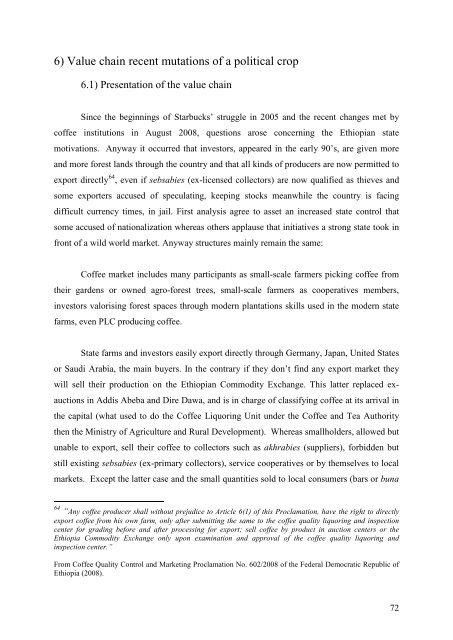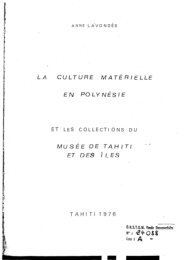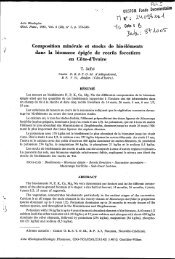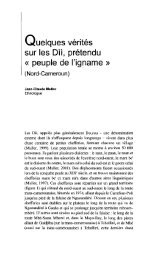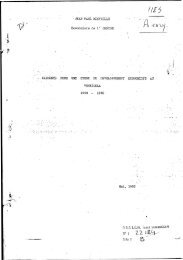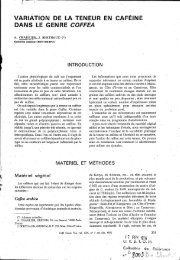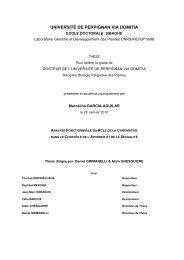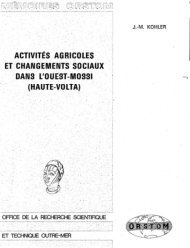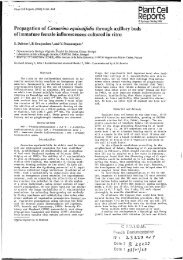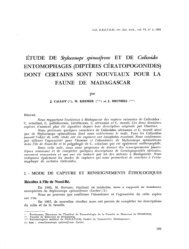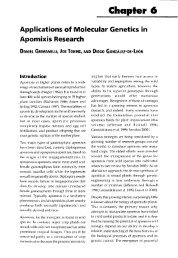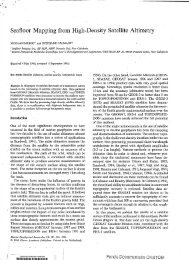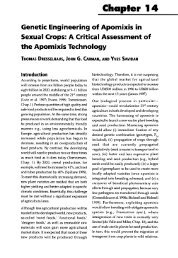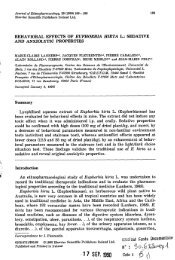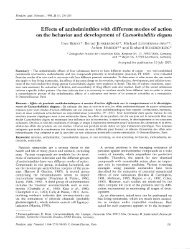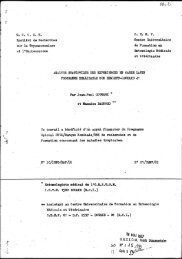A study case on coffee (Coffea arabica): Limu Coffe - IRD
A study case on coffee (Coffea arabica): Limu Coffe - IRD
A study case on coffee (Coffea arabica): Limu Coffe - IRD
Create successful ePaper yourself
Turn your PDF publications into a flip-book with our unique Google optimized e-Paper software.
6) Value chain recent mutati<strong>on</strong>s of a political crop<br />
6.1) Presentati<strong>on</strong> of the value chain<br />
Since the beginnings of Starbucks’ struggle in 2005 and the recent changes met by<br />
<strong>coffee</strong> instituti<strong>on</strong>s in August 2008, questi<strong>on</strong>s arose c<strong>on</strong>cerning the Ethiopian state<br />
motivati<strong>on</strong>s. Anyway it occurred that investors, appeared in the early 90’s, are given more<br />
and more forest lands through the country and that all kinds of producers are now permitted to<br />
export directly 64<br />
, even if sebsabies (ex-licensed collectors) are now qualified as thieves and<br />
some exporters accused of speculating, keeping stocks meanwhile the country is facing<br />
difficult currency times, in jail. First analysis agree to asset an increased state c<strong>on</strong>trol that<br />
some accused of nati<strong>on</strong>alizati<strong>on</strong> whereas others applause that initiatives a str<strong>on</strong>g state took in<br />
fr<strong>on</strong>t of a wild world market. Anyway structures mainly remain the same:<br />
<strong>Coffe</strong>e market includes many participants as small-scale farmers picking <strong>coffee</strong> from<br />
their gardens or owned agro-forest trees, small-scale farmers as cooperatives members,<br />
investors valorising forest spaces through modern plantati<strong>on</strong>s skills used in the modern state<br />
farms, even PLC producing <strong>coffee</strong>.<br />
State farms and investors easily export directly through Germany, Japan, United States<br />
or Saudi Arabia, the main buyers. In the c<strong>on</strong>trary if they d<strong>on</strong>’t find any export market they<br />
will sell their producti<strong>on</strong> <strong>on</strong> the Ethiopian Commodity Exchange. This latter replaced ex-<br />
aucti<strong>on</strong>s in Addis Abeba and Dire Dawa, and is in charge of classifying <strong>coffee</strong> at its arrival in<br />
the capital (what used to do the <strong>Coffe</strong>e Liquoring Unit under the <strong>Coffe</strong>e and Tea Authority<br />
then the Ministry of Agriculture and Rural Development). Whereas smallholders, allowed but<br />
unable to export, sell their <strong>coffee</strong> to collectors such as akhrabies (suppliers), forbidden but<br />
still existing sebsabies (ex-primary collectors), service cooperatives or by themselves to local<br />
markets. Except the latter <str<strong>on</strong>g>case</str<strong>on</strong>g> and the small quantities sold to local c<strong>on</strong>sumers (bars or buna<br />
64 “Any <strong>coffee</strong> producer shall without prejudice to Article 6(1) of this Proclamati<strong>on</strong>, have the right to directly<br />
export <strong>coffee</strong> from his own farm, <strong>on</strong>ly after submitting the same to the <strong>coffee</strong> quality liquoring and inspecti<strong>on</strong><br />
center for grading before and after processing for export; sell <strong>coffee</strong> by product in aucti<strong>on</strong> centers or the<br />
Ethiopia Commodity Exchange <strong>on</strong>ly up<strong>on</strong> examinati<strong>on</strong> and approval of the <strong>coffee</strong> quality liquoring and<br />
inspecti<strong>on</strong> center.”<br />
From <strong>Coffe</strong>e Quality C<strong>on</strong>trol and Marketing Proclamati<strong>on</strong> No. 602/2008 of the Federal Democratic Republic of<br />
Ethiopia (2008).<br />
72


